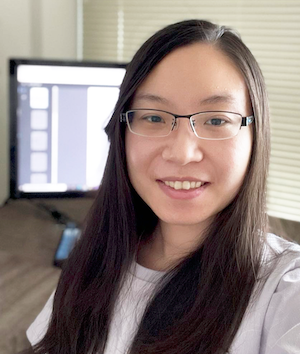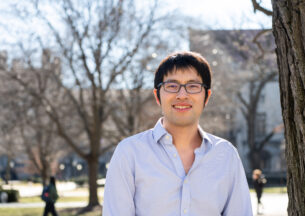PhD Student Chengcheng Wan Receives Microsoft Research Dissertation Grant

Fifth-year PhD student Chengcheng Wan was awarded the Microsoft Research Dissertation Grant, one of only ten students in the U.S. and Canada to receive the distinguished award in 2021. Wan was recognized for her research on developing accurate, efficient, and robust machine learning software systems.
The Microsoft Research Dissertation Grant aims to increase the pipeline of diverse talent receiving advanced degrees in computing-related fields by providing a research funding opportunity for doctoral students who are underrepresented in the field of computing. The grant will support Wan in her final year of graduate studies.
As machine learning gains power and potential for a wide range of applications, more software developers are incorporating it into their software for object recognition, language translation, and other tasks. But with this increased adoption comes more opportunities for mistakes that can slow or crash a program, burn more computation and energy than necessary, or simply use ML techniques inappropriately.
With her advisor, Professor of Computer Science Shan Lu, Wan has studied how software developers have used machine learning approaches such as neural networks, seeking to build new tools that help them optimize their code and avoid common errors.
“I’m focusing on how software engineers incorporate neural networks into software systems, and how to help them develop a robust machine learning software satisfying different requirements such as accuracy, latency, energy consumption and resource contention,” Wan said.
In recent papers at ICSE, ICML, and USENIX ATC, Wan has fleshed out her project, ALERT — Accurate Anytime Learning for Energy and Timeliness in Software Systems. The “anytime” involves creating neural networks that produce intermediate, increasingly accurate results while the system is still running, in case the program needs to meet a deadline before the full computation is complete. Wan also designed a management system that anticipates future constraints and balances accuracy, latency and energy consumption, and conducted a comprehensive study about how real-world applications are using machine learning APIs and common mis-use patterns.
In addition to her advisor, Lu, these research projects involve collaborations with UChicago CS faculty Henry Hoffmann and Michael Maire, drawing upon their strengths and experience with self-aware, adaptive computing and neural networks for computer vision. Wan also credited the department’s Techstaff for helping with the server hardware necessary to evaluate her systems, and the new Crerar building for its collaborative design.
“I feel like the CS department is really open and that allows me to cooperate with other faculty members and their students,” Wan said. “There’s a lot of connections between the faculty and they were eager to collaborate on a project, so that we were able to do some cross-sectional work and solve problems. It’s very nice to get new ideas from people outside this area to see how other people have another perspective.”












